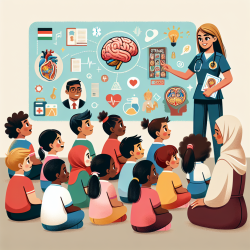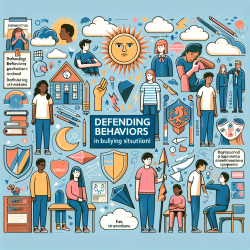In a recent study titled Low Motor Dexterity and Significant Behaviors Following Hospitalized Isolation in Children, researchers have uncovered significant impacts of hospitalized isolation on children's motor skills and behavior. This blog will explore the key findings and offer practical advice for practitioners working in special education and online therapy to improve their skills and better support their young patients.
Key Findings from the Study
The study conducted a cross-sectional assessment involving four pediatric patients who had undergone hospitalized isolation. The participants completed the Box and Blocks Test of gross manual dexterity while undergoing imaging of the motor cortex using functional near-infrared spectroscopy (fNIRS). Additionally, they completed the Behavioral Assessment System for Children, Third Edition (BASC-3) self-report and parent report to quantify their emotional and social behaviors.
- All participants displayed lower gross dexterity levels than normative data.
- Three out of the four participants displayed ipsilateral dominance of the motor cortex during the dexterity task.
- Three of the participants exhibited behavioral measures within clinically significant or at-risk scores.
Implications for Practitioners
These findings suggest that hospitalized isolation can lead to neuroplastic changes and behavioral issues in children. Practitioners can take the following steps to mitigate these impacts:
- Early Intervention: Implement early intervention strategies focusing on improving motor skills through tailored exercises and activities.
- Behavioral Support: Provide behavioral support and counseling to address emotional and social development issues.
- Continued Monitoring: Regularly monitor motor skills and behavioral health to track progress and adjust interventions as needed.
- Family Involvement: Engage families in the therapeutic process to provide a supportive environment for the child.
Encouraging Further Research
While this study provides valuable insights, further research is needed to understand the long-term impacts of hospitalized isolation on children's development. Practitioners are encouraged to participate in or support ongoing research efforts to enhance the evidence base and improve therapeutic practices.
To read the original research paper, please follow this link: Low Motor Dexterity and Significant Behaviors Following Hospitalized Isolation in Children.










